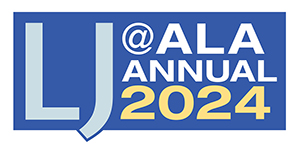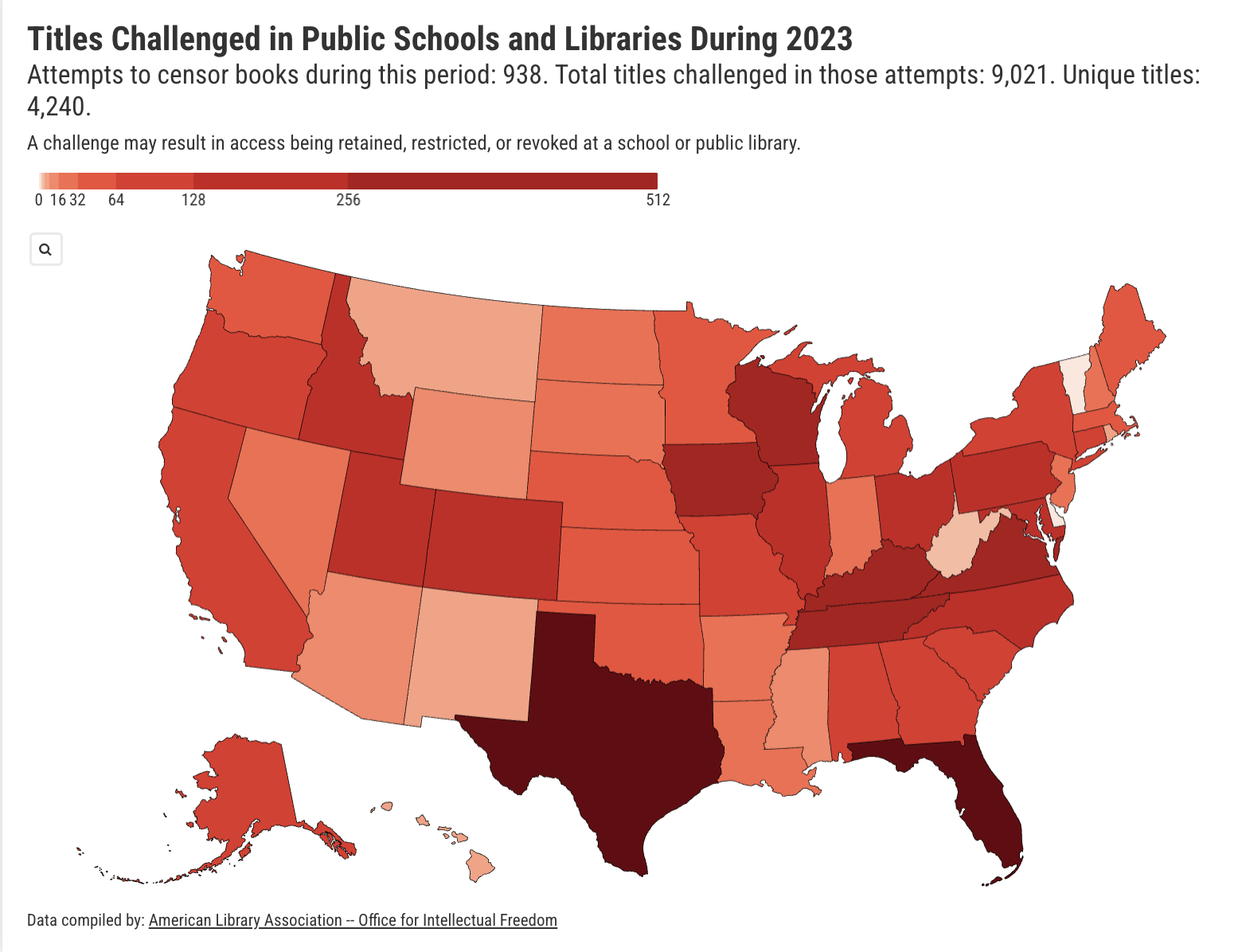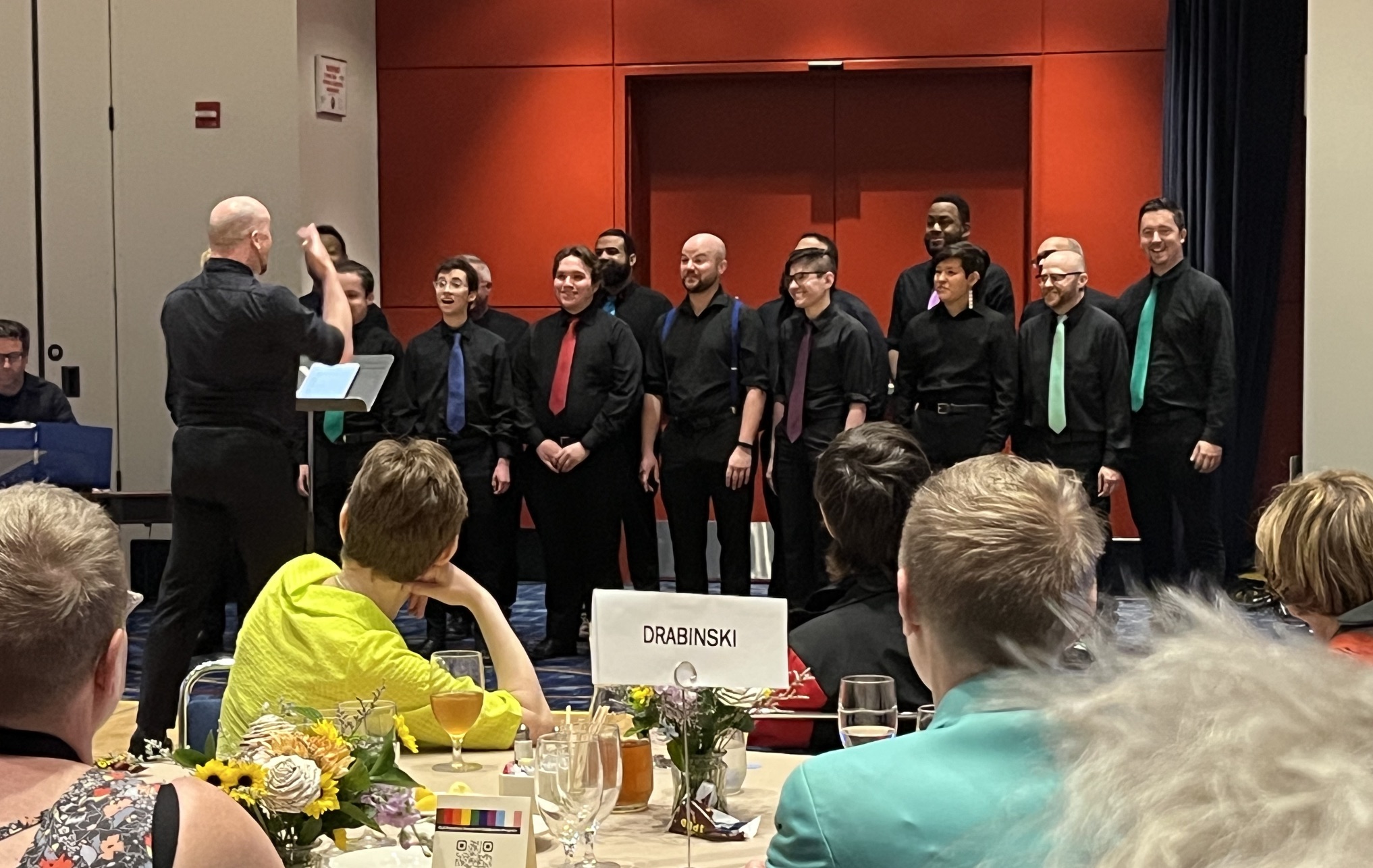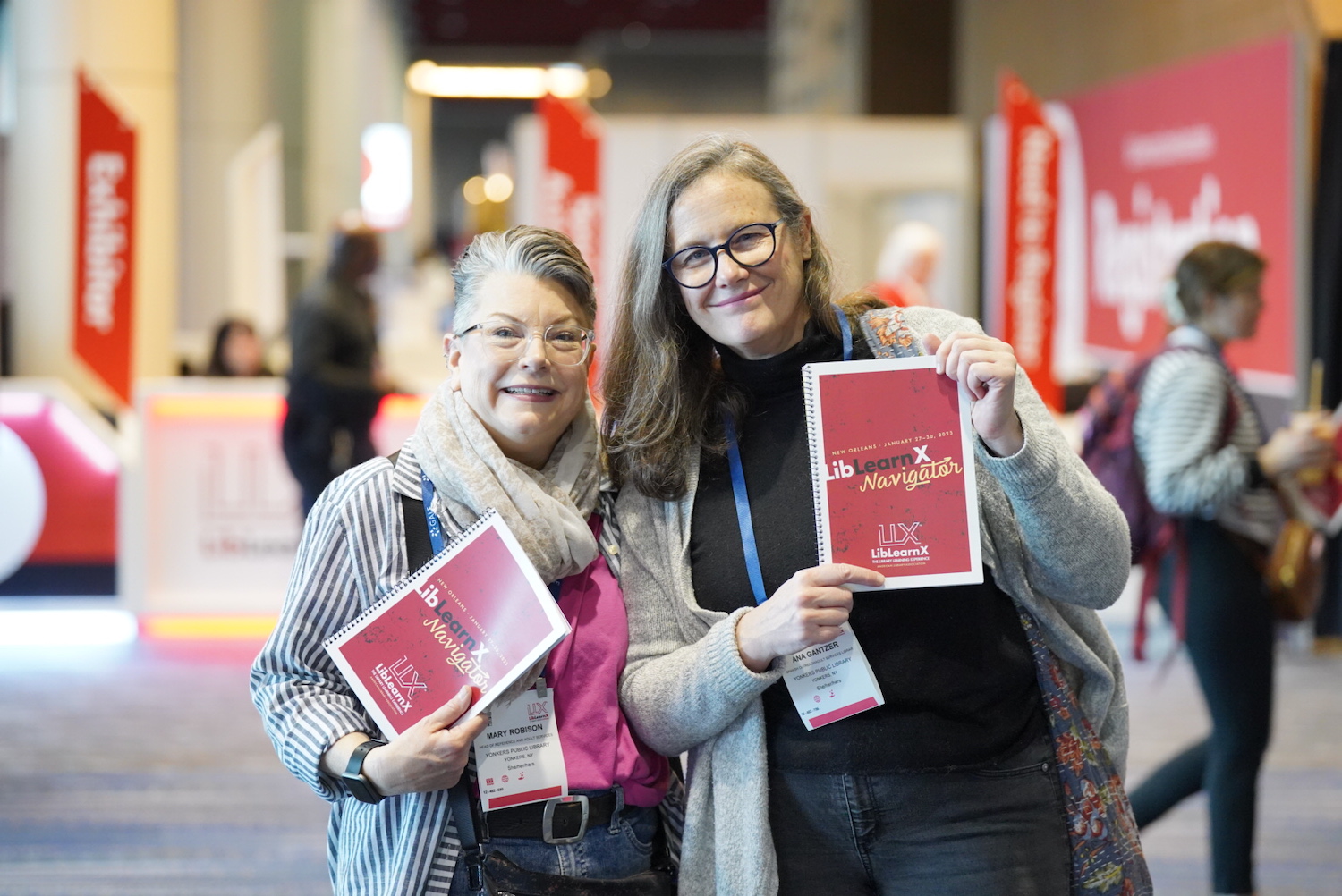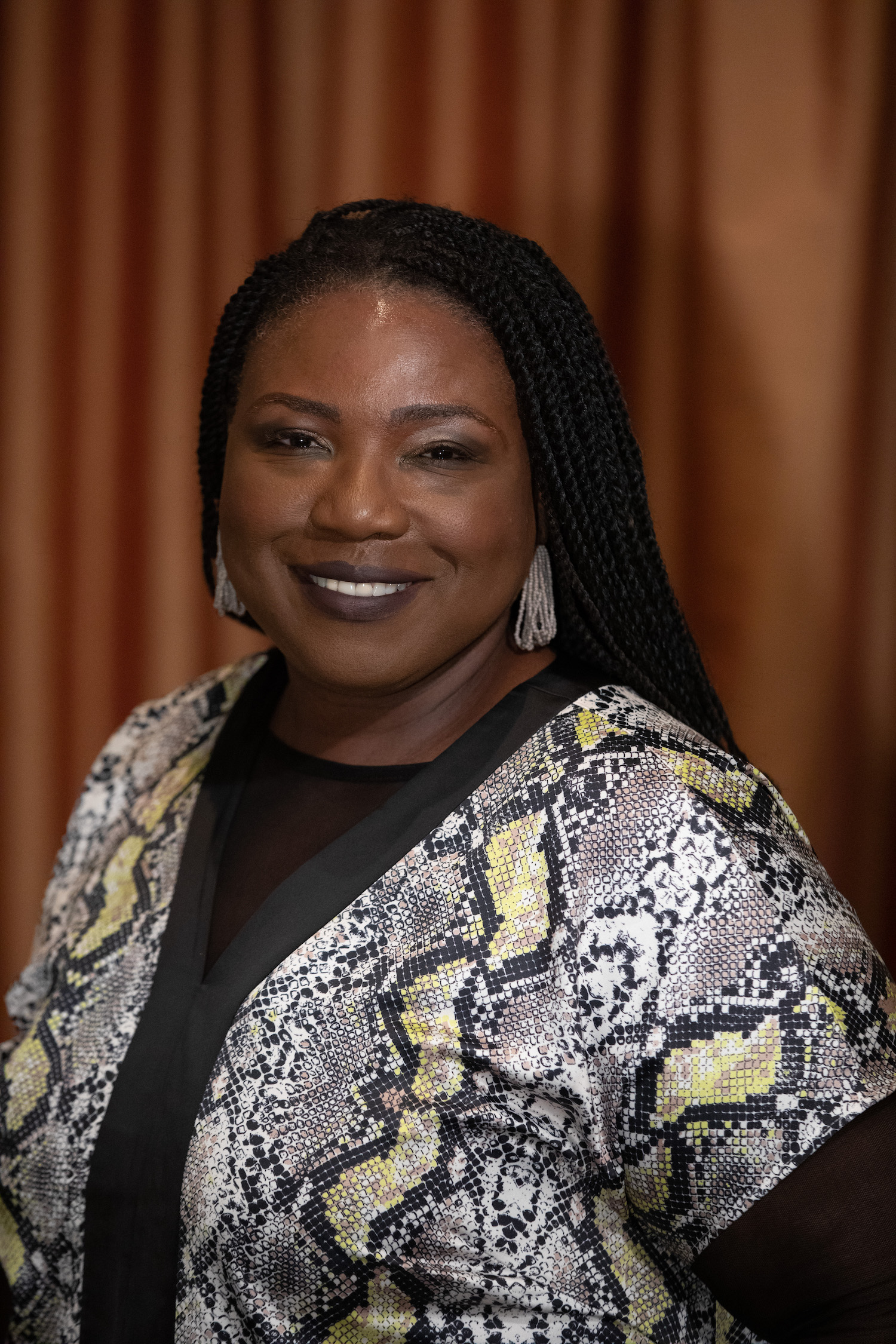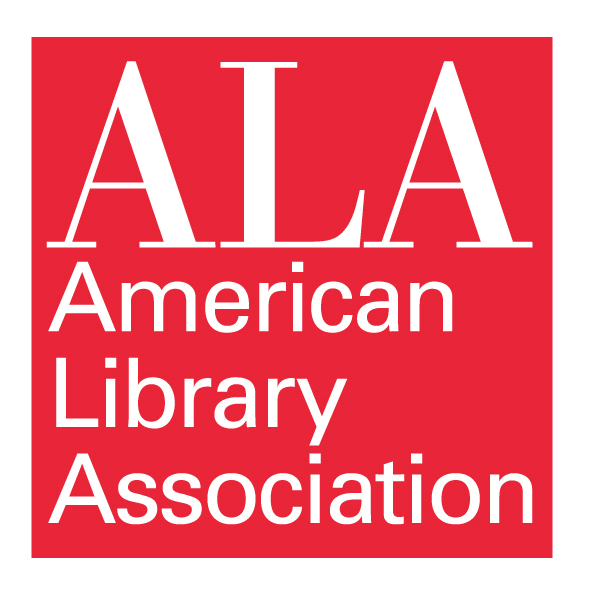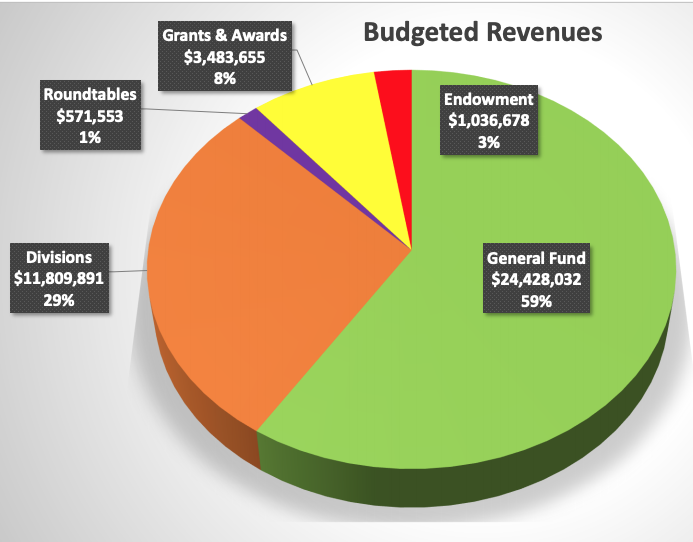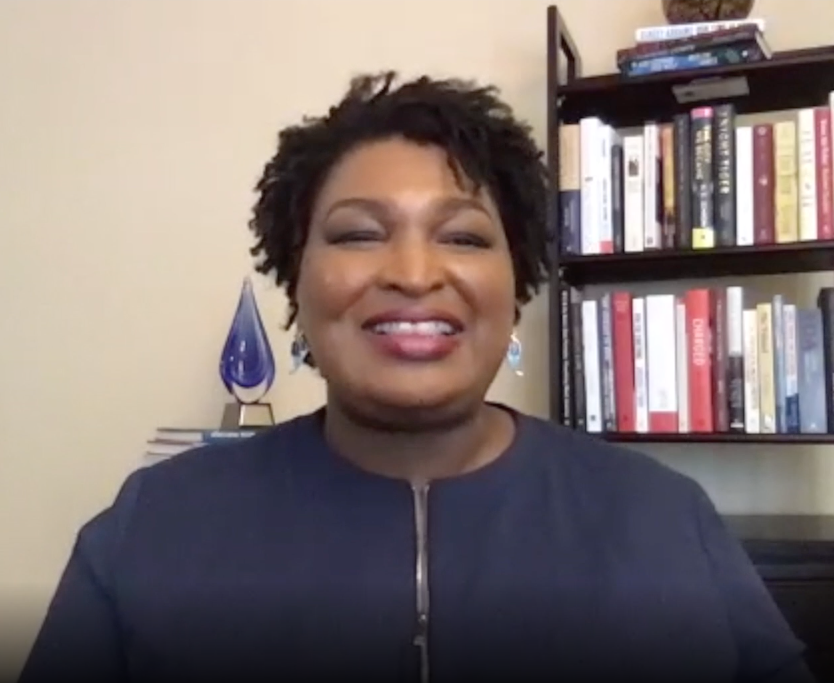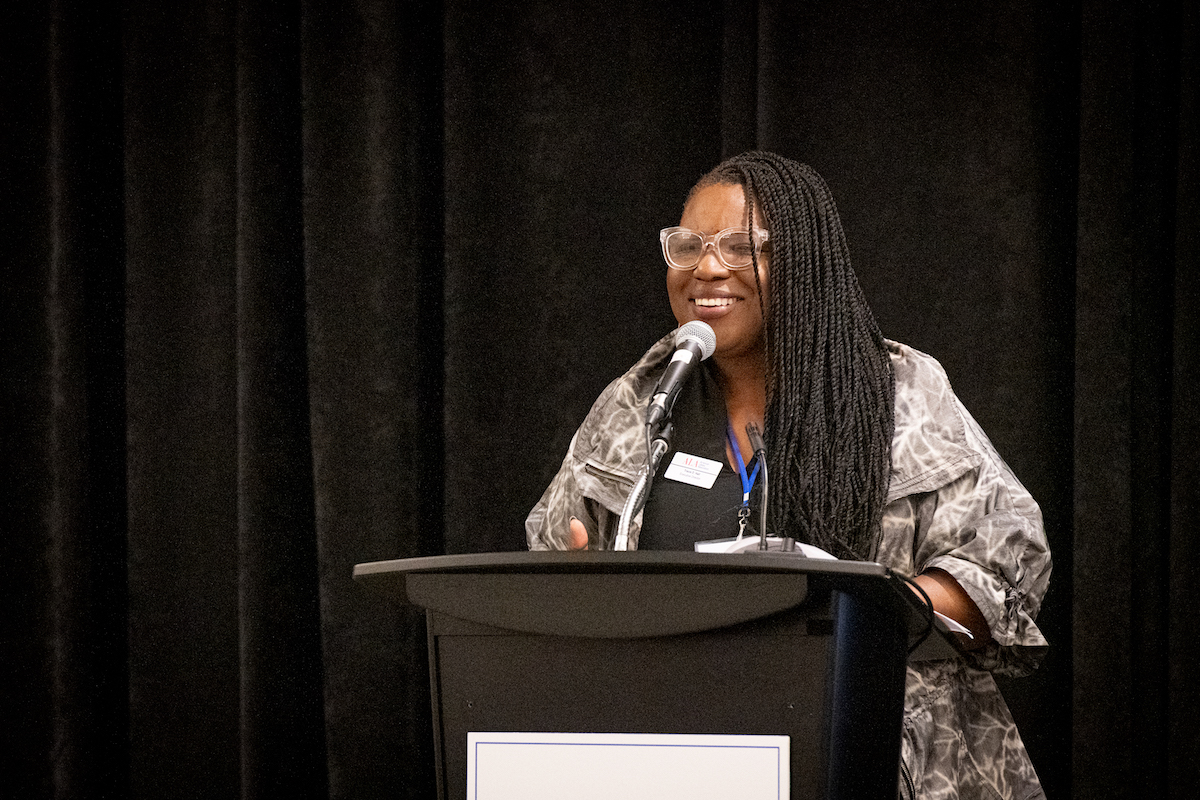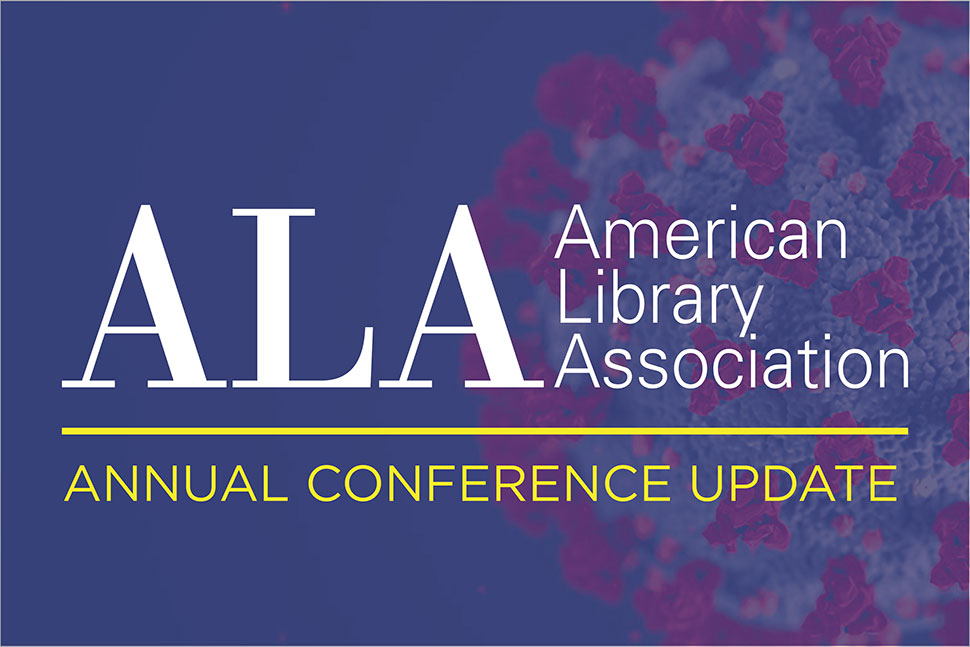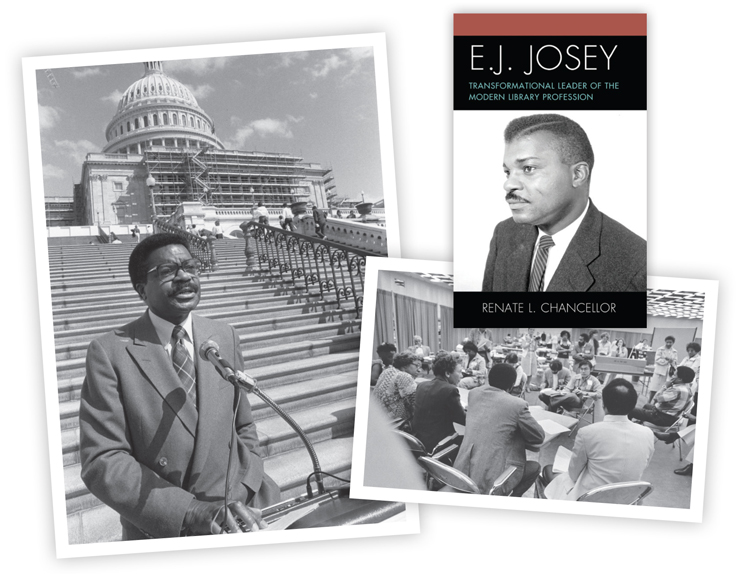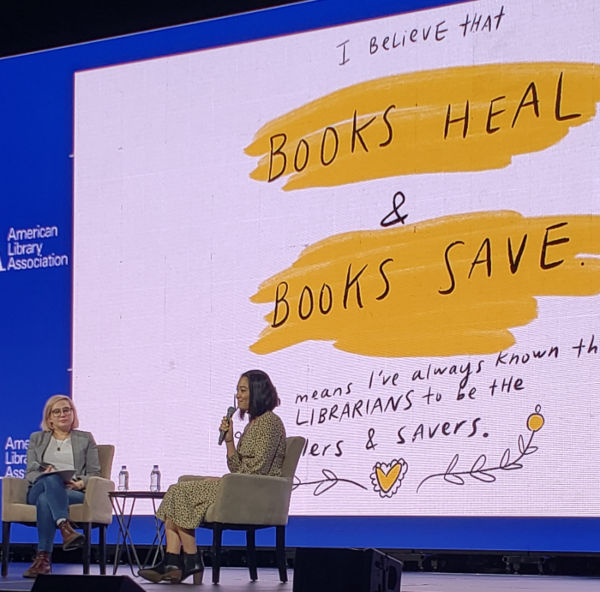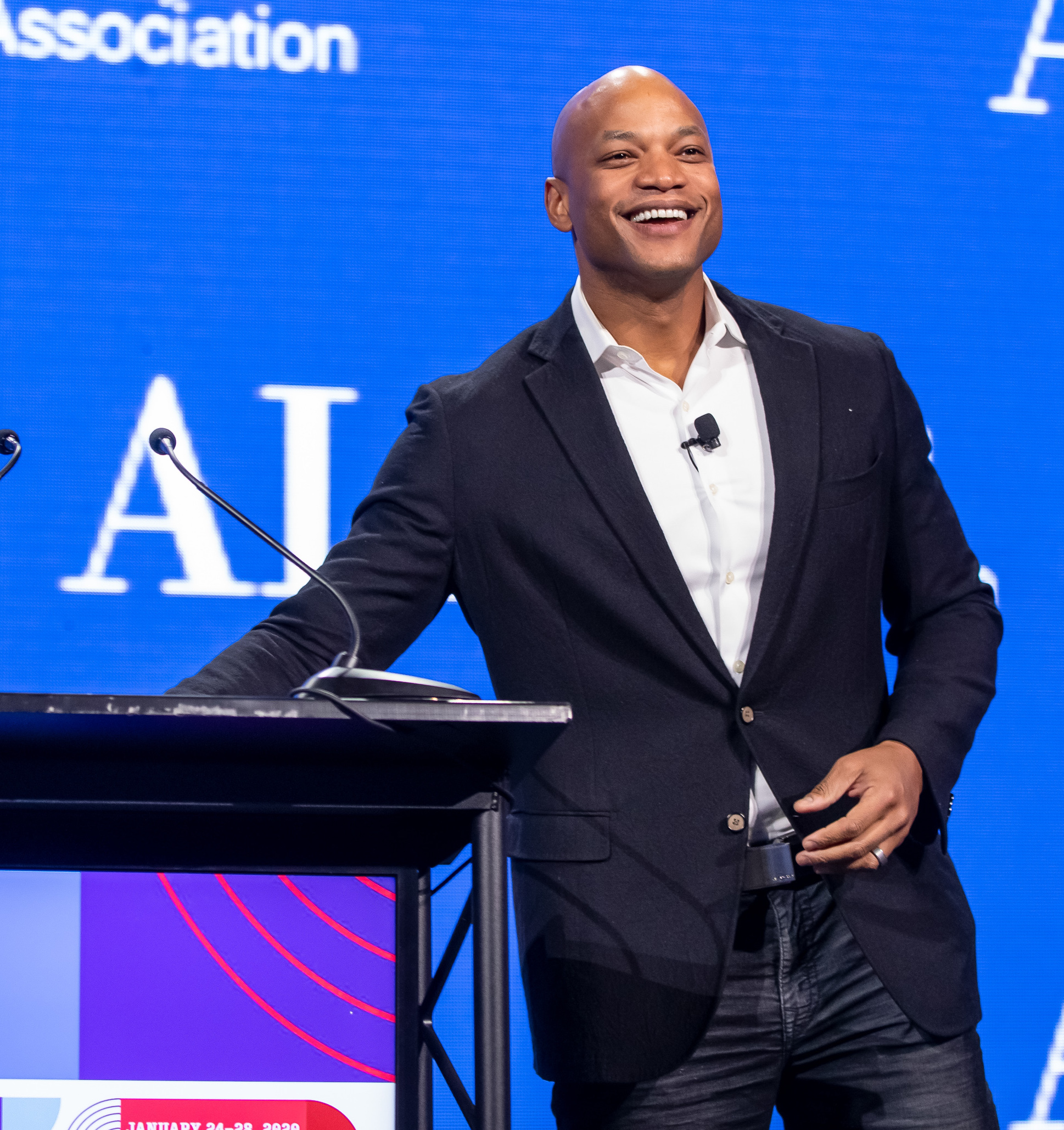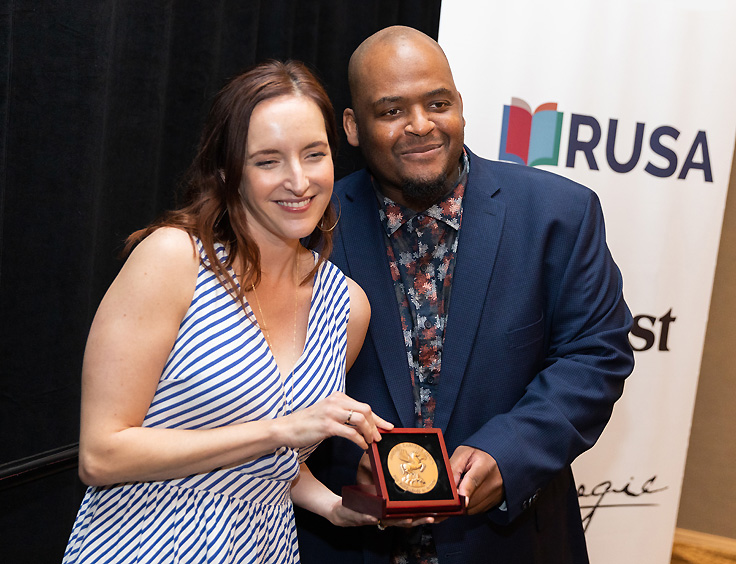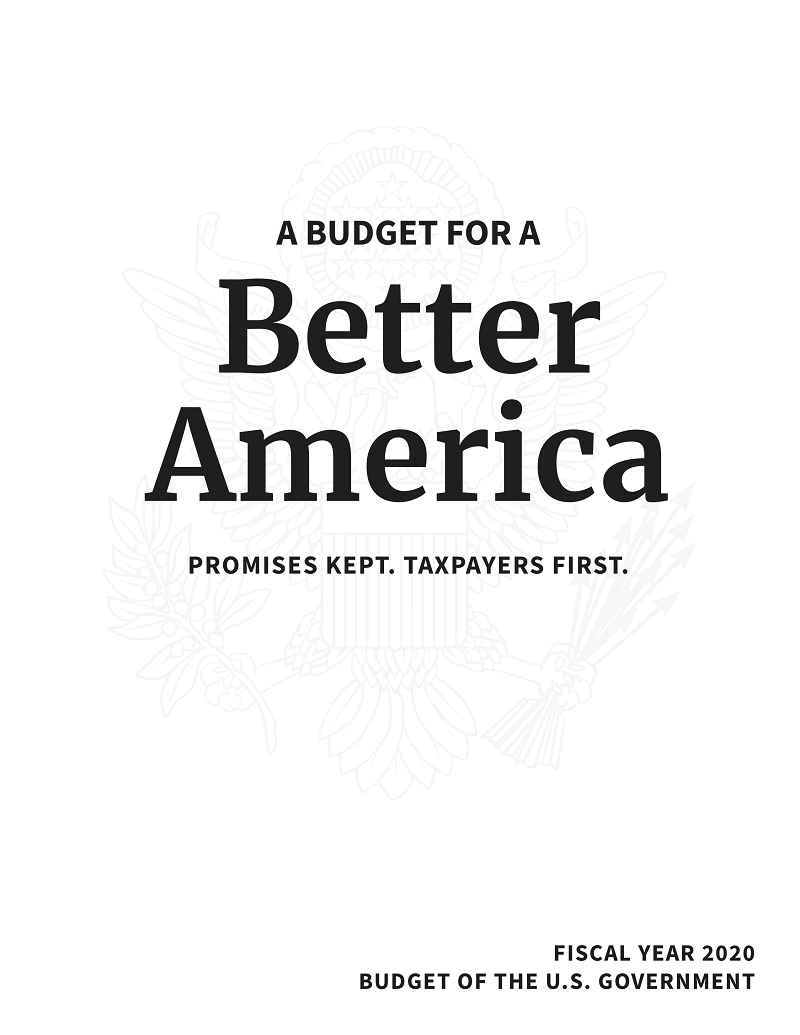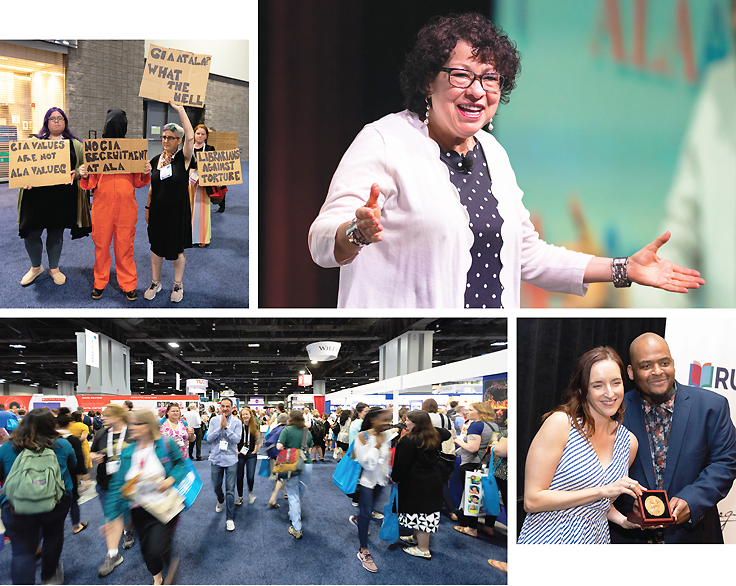Related
Keynoters and other speakers at American Library Association (ALA) conferences over the years have come to the conference from a wide range of disciplines, but their speeches all incorporate at least a few minutes attesting to the value of libraries in their lives—some landing more powerfully than others. At this year’s ALA Annual, held June 27–July 2 in San Diego, CA, a few speakers went beyond tales of being avid library users as children to tell stories that painted vivid pictures of what libraries, literacy, and unfettered access can mean to a kid who is looking to understand their world a little better.
With only days to go before the May 1 deadline for signatures on House appropriation letters, the American Library Association (ALA) is urging all library supporters to act immediately, using the #FundLibraries campaign tool, to ask their members of Congress to cosign Dear Appropriator letters supporting the Library Services and Technology Act (LSTA) and the Innovative Approaches to Literacy (IAL) program for FY25. ALA’s #FundLibraries page lets users fill out a request to their elected officials, as well as check to see whether their members of Congress have signed on.
On March 14, the American Library Association (ALA) released its most recent book challenge data for 2023. According to ALA’s Office of Intellectual Freedom (OIF), which tracks challenges and acts of censorship in public schools and libraries across the United States, the number of targeted titles rose 65 percent from 2022—once again, the highest levels ever documented by ALA. In public libraries, numbers increased 92 percent over the previous year; school libraries saw an 11 percent increase. Challenged titles featuring the voices and lived experiences of LGBTQIA+ and BIPOC individuals made up 47 percent of those targeted in censorship attempts.
Voting for the American Library Association (ALA) 2025–26 presidential campaign opens March 11, and ALA members in good standing can cast their ballots through April 3. LJ invited candidates Sam Helmick, community and access services coordinator at Iowa City Public Library; and Ray Pun, academic and research librarian at the Alder Graduate School of Education, Redwood City, CA, to weigh in on some key issues.
A Georgia senate bill aimed at detaching the state from the American Library Association (ALA) could send ripples throughout Georgia’s public library system and the state university that trains librarians. Senate Bill 390 would put a firewall between Georgia libraries and ALA. Effective on July 1, 2025 if enacted, it would remove ALA as an accrediting organization within the state and would ban ALA and its affiliates from receiving taxpayer—and even privately donated—funds for the association’s materials, services, or operations.
On November 15, the American Library Association (ALA) announced that it had selected Leslie Burger as interim executive director, effective immediately. She succeeds Tracie D. Hall, who resigned on October 6. LJ caught up with Burger as she began settling into her new role to talk about the experience she brings and her plans going forward.
The American Library Association (ALA) announced on October 5 that Tracie D. Hall will be leaving her role as the association’s executive director, effective October 6. Hall—a librarian, author, and advocate, among other roles—was appointed as ALA’s first female African American executive director in January 2020 after a nationwide search, succeeding Mary W. Ghikas, and stepped into the position on February 24—only days before libraries across the country shut their doors to accommodate COVID-19 safety measures.
New American Library Association (ALA) President Emily Drabinski has her eye on ALA’s projects and goals, as well as the association’s ongoing work standing up for its organizational values. LJ caught up with her in between stops on her tour of U.S. libraries to hear more about what she has planned.
On June 26, the eve of Emily Drabinski’s ALA presidency, campaign workers, school librarians, activists, colleagues, friends, and family members gathered in her suite in the Chicago Hilton Hotel on Michigan Avenue. Against the backdrop of boats slowly moving across Lake Michigan, she addressed supporters. “Tonight we’re celebrating library wins,” she said. “In our communities, against censorship, and for the common good.”
The American Library Association Annual conference is back in its hometown this year, with a full lineup designed to keep everyone engaged.
At the American Library Association (ALA) Annual Conference in June 2022, much discussion in Council sessions involved the organization’s transformation—specifically, streamlining ALA’s structure and governance through the consolidation of its Constitution and Bylaws. At LibLearnX, the Special Session: ALA Bylaws Convention, convened on Friday, January 27 to consider and finalize the draft general revision of the ALA bylaws, took on the work that remained unfinished.
In January, the American Library Association (ALA) offered its recently reimagined winter event, LibLearnX: The Library Learning Experience, in person for the first time. The inaugural LibLearnX, held in January 2022, was presented virtually to accommodate COVID restrictions and concerns. This year debuted a hybrid model: The live version, held at the Ernest N. Morial Convention Center in New Orleans from January 27–30, was attended by 1,712 library workers and supporters and 757 exhibitors, authors, illustrators, press, and ALA staff. The LLX Digital Experience hosted 190 online attendees.
On September 7, American Library Association executive director Tracie D. Hall was awarded the National Book Foundation (NBF) Literarian Award for 2022. The annual award celebrates an individual “for a lifetime of achievement in expanding the audience for books and reading,” the NBF website states. This marks the second year that the honor has gone to a librarian; 2021’s award was given to Nancy Pearl.
Brooks Rainwater recently stepped into his new role as president and CEO of Urban Libraries Council (ULC). LJ caught up with him as he settled in at ULC to find out more about his move to libraries from a career in public policy.
Lessa Kanani‘opua Pelayo-Lozada has become an effective champion of Asian American and Pacific Islander library workers and a strong voice in the American Library Association (ALA) and the Asian Pacific American Librarians Association, where she was the first Pacific Islander to serve as executive director. She is now ALA president-elect.
Now that voting for the American Library Association (ALA) 2023–24 presidential campaign has begun, LJ invited candidates Emily Drabinski, interim chief librarian at The Graduate Center, City University of New York (CUNY); and Kelvin Watson, executive director of the Las Vegas–Clark County Library District, to weigh in on some key issues.
On January 23, during its virtual National General Membership meeting, REFORMA (the National Association to Promote Library and Information Services to Latinos and the Spanish-Speaking) was disrupted by a person or people using racial slurs and misogynistic hate speech. The infiltration highlighted the discrepancies between the association’s desire for an open, inclusive gathering and an increasing need for added security in an online environment.
UPDATE: The Round Two application window is now open through October 29; awardees will be notified in mid-November. Register here for a webinar about the award program and how to apply for the current round on October 14 at 3 p.m. Eastern.
On May 14, the American Library Association (ALA) announced the appointment of Mary Davis Fournier, most recently director of ALA’s Public Programs Office, as executive director of the Public Library Association (PLA), a division of ALA. LJ caught up with her to hear more about what she plans to bring to the new role and the challenges—and opportunities—in emerging from the pandemic.
The American Library Association launched two relief funds at the beginning of April. The $1.25 million ALA COVID Library Relief Fund will offer grants of $30,000–$50,000 to public, school, academic, and tribal libraries across the United States and U.S. Territories that have been affected by pandemic-influenced budget contractions. The ReMember Fund will ensure that ALA members financially impacted by COVID-19 can maintain their membership.
On April 5, the American Library Association (ALA) released its annual State of America’s Libraries Report —this year focusing on the COVID-19 pandemic and how public, school, and academic libraries stepped up to meet patrons’ and communities’ needs. Issued during National Library Week, April 4–10, the report features snapshots of libraries throughout the United States—highlighting the ways they’ve adapted to the changes, restrictions, budget contractions, and opportunities created by the pandemic—and includes a list of the Top Ten Most Challenged Books of 2020.
As voting for the American Library Association (ALA) 2022–23 presidential campaign continues, LJ invited candidates Stacey Aldrich, state librarian at the Hawaii State Public Library System in Honolulu; Ed Garcia, director of Cranston Public Library, RI; and Lessa Pelayo-Lozada, adult services assistant manager at Palos Verdes Library District in Rolling Hills Estates, CA, to weigh in on some key issues pertaining to ALA and librarianship; further information can be found on ALA’s Election Information page.
At the American Library Association virtual Midwinter Meeting, the association continued its ambitious three-pronged strategy of self-reinvention. The Forward Together plan, which for several years has pursued a streamlined and less siloed governance structure, is joined by a revision-in-progress of the Operating Agreement, which defines the relationship of the association to its divisions and roundtables, and the Pivot Strategy, which addresses how association management and staff do the work. These three parallel threads ran through the virtual membership meeting, the executive board, and of course, Council convenings.
Because of concerns about travel and gathering during the ongoing COVID-19 pandemic, the Association of College and Research Libraries (ACRL)’s Board of Directors announced on October 1 that the 2021 ACRL conference, previously scheduled for April 14–17 in Seattle, WA, will instead be held as an all-virtual event.
Following a successful virtual version of its Annual conference in June, the American Library Association (ALA) announced on August 6 that in light of the continuing pandemic, the next Midwinter meeting, originally scheduled to be held in Indianapolis in January 2021, will also be an all-virtual event.
Of the many innovations necessitated by the American Library Association (ALA) Annual conference shift from in-person to virtual because of COVID-19, governance meetings using two technologies in tandem were among the most high-stakes. Despite a few glitches and a noticeable learning curve, on the whole they went smoothly, with ALA Council members voicing approval of the voting software even for in-person use once conferences resume.
At the American Library Association's (ALA) virtual conference held this week, replacing the annual in-person conference which was canceled because of the pandemic, ALA President Wanda Brown invited as her President’s Program speaker Stacey Abrams—author, Georgia gubernatorial candidate, and founder of the organizations Fair Fight (for voting rights) and Fair Count (for census participation).
As we all know by now, 2020 is not a normal year and ALA's annual conference has gone virtual from June 24–26. While missing the chance to network, connect, and collect galleys, the silver lining is that attending ALA is now available to a far broader cross-section of the field than ever before. Here, LJ’s editors have made their personal picks.
On May 18, the Association of College and Research Libraries (ACRL), the Association of Research Libraries (ARL), ALA’s Office for Diversity, Literacy and Outreach Services (ODLOS), and the Public Library Association (PLA) announced the formation of the Building Cultural Proficiencies for Racial Equity Framework Task Force.
Earth Day may find people wondering what they can do to help combat climate change and support sustainability efforts—particularly when most are still staying home to help slow the spread of COVID-19. But effective strategies can come from small starts. As GoFundMe, Indiegogo, and Facebook fundraisers have shown us, giving is not only for the rich—and philanthropy can come from unexpected places.
UPDATE: The $2 trillion Coronavirus Aid, Relief, and Economic Security (CARES) Act was signed by President Trump on March 27, and included $50 million for IMLS. This infusion of funds for digital inclusion projects will help support libraries that have had to pivot quickly in their services, ALA stated.
Despite many other activities being on hold this month, voting for the American Library Association (ALA) 2021–22 presidential campaign opened on March 9, and ALA members in good standing can cast their ballots through April 1. LJ invited candidates Patricia “Patty” M. Wong, city librarian at Santa Monica Public Library, CA, and Steven Yates, assistant director of the University of Alabama School of Library and Information Studies, Tuscaloosa, to weigh in on some key issues pertaining to ALA and librarianship.
On the evening of March 24, the American Library Association (ALA) announced that the 2020 ALA Annual Conference and Exhibition, scheduled for June 25–30 in Chicago, has been canceled because of concerns over the COVID-19 pandemic. This will be the first time the Annual conference has not been held in 75 years; the last cancellation was in 1945, during World War II.
Taking a step back is about more than just creating an opportunity for others to step forward; it is about making sure that we are getting the most for our profession and communities.
By far the biggest and most contentious issue dominating the American Library Association Midwinter Meeting Council sessions was not the organization’s governance, but its finances: specifically, how and why a shortfall of approximately two million dollars in operating funds occurred.
UPDATE: On February 14, ALA President Wanda K. Brown and the ALA Executive Board released a statement in response to financial shortfalls in the current fiscal year operating budget that were first brought to light at the Association’s recent Midwinter Meeting, available here.
During the pinnacle of E.J. Josey’s leadership in the American Library Association (ALA), he fought two systems of institutionalized racism through democratizing librarianship: segregation in the United States and apartheid in South Africa.
The 2020 American Library Association Midwinter conference, held January 24–28 in Philadelphia, closed with featured speaker Chanel Miller on Monday afternoon. Miller, an author and unintentional activist, considers libraries to be her home away from home.
The 2020 American Library Association Midwinter conference, held January 24–28 in Philadelphia, officially kicked off with featured speaker Wes Moore’s opening session on Friday afternoon. Moore—an author, social entrepreneur, television producer, and decorated U.S. Army combat veteran—linked his journey as a reader to pressing issues of social justice and the role libraries can, and should, play.
The penultimate Midwinter Meeting of the American Library Association (ALA) will take place Jan. 24–28 in Philadelphia. This year’s programmatic offerings are timely, tackling the library role in addressing issues from service to refugees and detained migrants to disaster recovery to the upcoming 2020 Census—and election. Within the profession, grappling with structural inequity and fighting for fair ebook access are also top of mind.
Julius C. Jefferson Jr., section head of the Library of Congress’s Congressional Research Service, is the American Library Association (ALA) president-elect for 2020–21.
Patricia “Patty” M. Wong, City Librarian at Santa Monica Public Library, CA, and Steven Yates, Assistant Director of the University of Alabama School of Library and Information Studies, Tuscaloosa, are the candidates for the American Library Association (ALA) 2020–21 presidency.
Margaret “Peggy” Barber, who helped change the way libraries promote their services, died on August 25 at age 75. Among other accomplishments, Barber established the American Library Association Public Information Office, Public Programs Office, and Graphics program, which produced the acclaimed "Celebrity Read" poster series and the universal library logo, used as street signage nationwide. She received the Lippincott Award for distinguished service to the profession in 1999.
I wish I could have been in Washington, DC, on June 22 when the American Library Association’s (ALA) Social Responsibility Round Table (SRRT) celebrated its 50th anniversary. SRRT Action Council/Coordinator Charles Kratz invited me, and the message brought back memories of the time when SRRT was first founded. SRRT quickly became ALA’s conscience, and SRRT activism frequently shaped the agenda at ALA conferences in the years after the 1969 Annual Conference in Atlantic City, NJ.
The eighth annual Andrew Carnegie Medals for Excellence in Fiction and Nonfiction ceremony and reception, held during the American Library Association (ALA) Annual Conference in Washington, DC, at the Renaissance Hotel, celebrated winning authors Rebecca Makkai (The Great Believers, Viking) and Kiese Laymon (Heavy: An American Memoir, Scribner).
The urgency behind sustainability work has been growing year by year and has picked up considerably with the issuance of two reports in fall 2018.
The White House released President Trump’s preliminary FY20 budget proposal on Monday, March 11. As with the administration’s proposed FY18 and FY19 budgets, it calls for major cuts to domestic federal spending, and proposes the elimination of a number of non-military agencies, including the Institute of Museum and Library Services (IMLS).
The theme of the Association of College and Research Libraries (ACRL) conference in Cleveland, April 10–13, is Recasting the Narrative. This year’s gathering promises over 500 programs that will explore new roles for academic library professionals, as well as new ways the library can position itself—on campus and within the higher education landscape.
Voting for the American Library Association (ALA) 2020–21 presidential campaign will open on March 11, and ALA members in good standing can cast their ballots through April 3. Results will be announced April 10. This year’s candidates, Julius Jefferson and Lance Werner, represent libraries from both the government and public sectors.
The 2019 American Library Association (ALA) Annual conference, held in Washington, DC, from June 20–25, saw sunny skies and a general mood of engagement. Appropriately to both the setting and the uncertain times, there was a strong focus on inclusion and social justice, both inside and out of the Walter E. Washington Convention Center—from speakers to sessions to ad hoc protests.
ALREADY A SUBSCRIBER? LOG IN
We are currently offering this content for free. Sign up now to activate your personal profile, where you can save articles for future viewing
